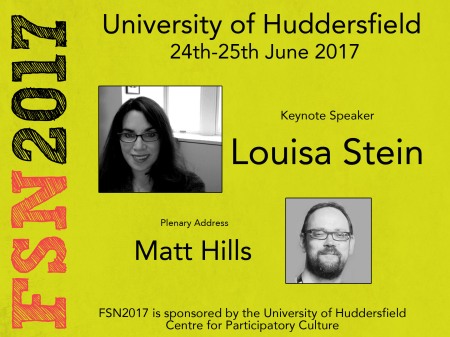Television Shows, Brands and Properties in the Global Television Scenario
Bologna, Dipartimento delle Arti, May 23rd-24th, 2017
Confirmed keynote speakers: Jérôme Bourdon, Jean Chalaby
Organized by Luca Barra and Paola Brembilla, in collaboration with
Andrea Esser, the Media Across Borders network and the ECREA Television Studies section.
Media Mutations, the international conference of studies on audiovisual media hosted by Dipartimento delle Arti of Università di Bologna, comes to its ninth edition. This year’s theme is the cultural and industrial role of global formats in television production, distribution and viewing practices.
In the last fifteen years, following a long history that already started in the early years of the medium, television all around the world has been constantly and successfully broadcasting global formats: big brands and franchises, with a codified set of rules, sold at international audiovisual markets, distributed in many countries and on numerous networks and channels, and adapted and remade according to the tastes and needs of local audiences. Beginning with Big Brother, Survivor and Who Wants to Be a Millionaire?, and later with The X Factor, Masterchef, Peking Express, In Treatment, The Bridge, Pulseras Rojas and many others, formatted shows have contributed to creating a shared television aesthetics, spreading best practice in production, distribution and marketing, and establishing similar consumption habits.
At the same time, differences and national specificities are still at work, and the success of global formats in individual national markets depends on successful localization. The process of formatization is now used in both TV fiction and entertainment productions, and it is relentlessly expanding, both at the economic and cultural level, and in a convergent media scenario.
Some classic and more recent studies have established the field of format research over the past 18 years, defining various format dimensions and analyzing their ability to travel across different countries and cultures (e.g. Moran 1998, 2007; 2009; Oren and Shahaf, 2012; Chalaby 2016; Ellis, Esser and Gutiérrez Lozano 2016; Aveyard, Moran and Jensen 2016). The conference aims to expand the academic knowledge of this important phenomenon, establish new research perspectives in the field, and strengthen the understanding of national and transnational distribution and reception practices. The focus will not only be on cultural and linguistic format issues, but on the legal, economic and productive aspects of format development and format trade, and the different genres and types of formatted audiovisual products.
Media Mutations 9 encourages submissions that cover the following subjects and topics, favoring proposals and case histories that are able to intersect across different areas:
– The economic/trade dimension of TV formats: rise and evolution of the format market; formats as commercial properties; format distributors and buyers; negotiation aspects; sales; format companies; mergers and acquisitions; trade rituals and habits; global buying and selling practices and national specificities; emerging production regions and established format centers.
– The legal dimension of TV formats: intellectual properties, franchise and copyright issues; legal protection of formats, globally and nationally; protecting original ideas from copycat shows and piracy; forms of contracts and license deals; formats on digital platforms and as reruns.
– The productive dimension of TV formats: advantages and disadvantages of making or buying formats; format development process; developing original programs vs. adapting international formats; professional skills and roles; production processes; branded content formats.
– The distributive dimension of TV formats: circulation of formats
across different countries and television models; national adaptations and mediations of global formats; remakes vs. ready-made programming; programming, scheduling and promotion practices; digital distribution of formats on over-the-top and on demand audiovisual platforms.
– The aesthetic dimension of TV formats: formats as symbolic and narrative forms; formats as a set of fixed rules; formats as branding devices; aesthetic innovation vs. conservation; formats and television genres/texts (game, reality, talent, fiction, general entertainment, factual programming); scripted vs. unscripted formats; specificities of fiction formats; transmedia storytelling.
– The audience dimension of TV formats: national appeal of global formats; limits and constraints imposed by local taste; format success and consequences on viewing habits and consumption practices; formats and convergent television/media; quantitative (ratings) and qualitative analysis of format audiences.
– The historical dimension of TV formats: evolution of formats and markets; different steps/models; “formats” before the advent of licensed formats; formats on PSB, commercial TV and pay TV; role of national/transnational television cultures in creating successful formats.
– The life-cycle of television formats: from development and broadcast in the first country to international circulation and national adaptations, to the “death”/re-birth of a format.
– Theoretical and methodological approaches to television formats.
– Transnational case histories: global formats and their adaptations; key brands and franchises; leading and upcoming format countries.
The official languages of the conference are English and Italian.
Abstracts (250-500 words for 20-minute talks) should be sent to mediamutations.org@gmail.com by February 15th 2017. Please attach a brief biography (maximum 150 words) and an optional selected bibliography (up to five titles) relevant to the conference theme. Notification of acceptance will be sent by March 15th. A registration fee will be requested after notification of paper acceptance (€40 for speakers and professional attendants; free conference admission for students).
This Conference is financially supported by Centro Dipartimentale La Soffitta and Dipartimento delle Arti, Università di Bologna. For more information on the previous editions of Media Mutations, please check the conference website, http://www.mediamutations.org.
